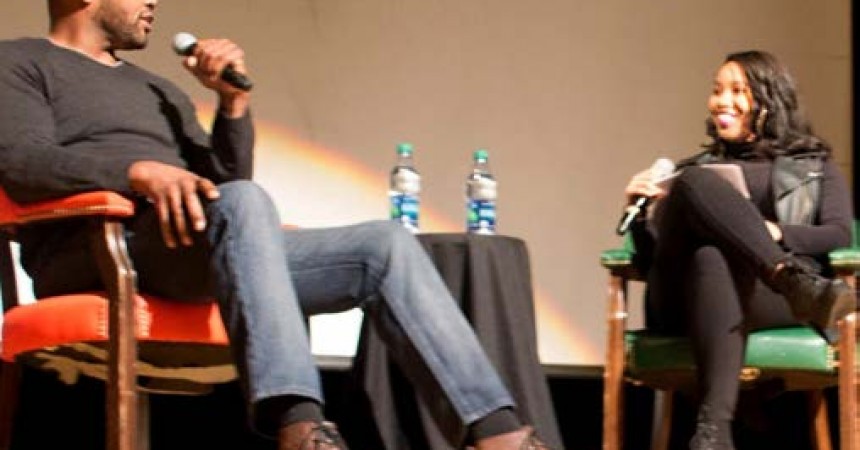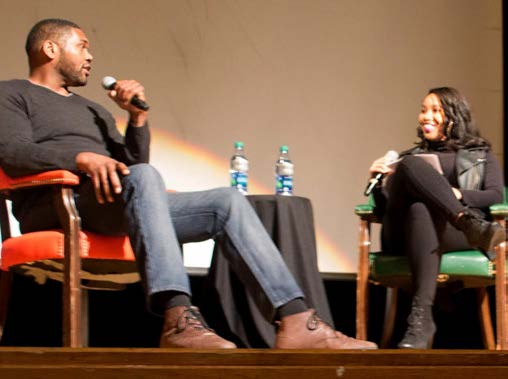
‘The Underground’ gives audience real-life look at slavery

Theodus Crane, left, and Taylor A. Bishop discuss the first episode of “The Underground” at FAMU’s Lee Hall.
Photo by Braxton White
By Stephanie C. Davis
Outlook writer
What unfolded on the stage at Lee Hall seemed so real, although it was only a depiction of slaves making an escape in the made-for-television documentary, “The Underground”.
It started with scenes of slaves picking cotton, washing clothes and doing house chores. Some also tended the “Master’s” family, while others were getting whipped so severely that their bloody flesh was exposed.
“The Underground” is a 10-part series that documents the escape of a group of slaves in Georgia. While on the run, they encountered a secret abolitionist who was willing to assist their escape to freedom.
With a popular Kanye West song blaring in the background, the scene was set on a plantation.
Actor Theodus Crane, who played the slave character “Zeke”, said he found the plantation setting astonishing.
“When arriving there, I had no idea I would be on an actual slave plantation,” he said. “It was a bit heavy.”
Life in slavery seemed even more gut-wrenchingly unbelievable to the audience. Some squirmed in their seats and covered their eyes, while others talked to the screen.
“I was definitely not expecting what I just saw,” said Marena Taylor, a senior cardiopulmonary science student at FAMU. “It is definitely something that the Black community, especially HBCU students need, to see.
“It is not the watered-down version filmmakers usually put in their shows. This is the uncut version, and I love it.”
The real-life depiction is the very reason why producers of the show decided to premiere it on HBCU campuses around the country.
The showing at FAMU last week will be followed by stops at Clark Atlanta University, Spelman College, Morehouse College, Tuskegee University, Howard University and Jackson State University.
The Black history lesson in the series also is intended to give millenniums “a raw reality of what took place in those times,” said Giles Williams, a member of the organization that sponsored the screening.
As difficult as it was to watch, there were scenes in which Blacks came off as heroes for the way they handled difficult situations.
“We did not get out of slavery being victims; there were people that actually fought back and made a run for it,’ Crane said. “That is the story we want to tell.”







